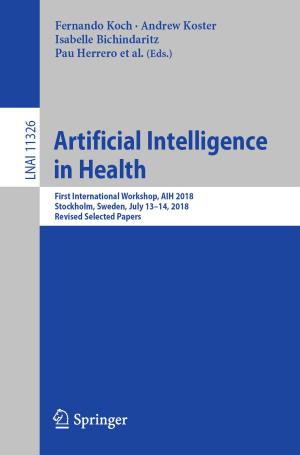Diet, Nutrition, and Fetal Programming
Nonfiction, Health & Well Being, Medical, Medical Science, Biochemistry, Patient Care, Nutrition| Author: | ISBN: | 9783319602899 | |
| Publisher: | Springer International Publishing | Publication: | October 13, 2017 |
| Imprint: | Humana | Language: | English |
| Author: | |
| ISBN: | 9783319602899 |
| Publisher: | Springer International Publishing |
| Publication: | October 13, 2017 |
| Imprint: | Humana |
| Language: | English |
This volume offers the most comprehensive coverage on fetal programming. Chapters are written by authors of international and national standing, leaders in the field and trendsetters. The clinical relevance of the current research is emphasized in each chapter, which also contains key points, key words, and concise summaries for ease of learning. Fetal programming affects conditions in the immediate postnatal period, as well as in later life and adulthood. These conditions include cardiovascular disease, frank hypertension, stroke, dyslipidemia, coagulopathy, increased insulin resistance-metabolic syndrome, type-2 diabetes, leukemia, testicular cancer, prostate cancer, breast cancer, polycystic ovary syndrome, precocious puberty, impaired immune function, renal disease, lung disease, and osteoporosis. Neuropathologies, behavioral and mental deficiencies, schizophrenia, and depression have also been reported in adults who were exposed to nutritional inadequacies in utero.
Diet, Nutrition and Fetal Programming provides an overview on the effects of fetal programming on disease, and comprehensive looks at maternal nutrition factors and fetal programming effects on brain and behavior, and physiology and disease. It also provides an in depth look at specific nutrient restrictions and supplements on physiology and disease, the effects of maternal disease on fetal programming, mechanisms of programming, and a special section on the international aspects and policies on fetal programming.
This volume offers the most comprehensive coverage on fetal programming. Chapters are written by authors of international and national standing, leaders in the field and trendsetters. The clinical relevance of the current research is emphasized in each chapter, which also contains key points, key words, and concise summaries for ease of learning. Fetal programming affects conditions in the immediate postnatal period, as well as in later life and adulthood. These conditions include cardiovascular disease, frank hypertension, stroke, dyslipidemia, coagulopathy, increased insulin resistance-metabolic syndrome, type-2 diabetes, leukemia, testicular cancer, prostate cancer, breast cancer, polycystic ovary syndrome, precocious puberty, impaired immune function, renal disease, lung disease, and osteoporosis. Neuropathologies, behavioral and mental deficiencies, schizophrenia, and depression have also been reported in adults who were exposed to nutritional inadequacies in utero.
Diet, Nutrition and Fetal Programming provides an overview on the effects of fetal programming on disease, and comprehensive looks at maternal nutrition factors and fetal programming effects on brain and behavior, and physiology and disease. It also provides an in depth look at specific nutrient restrictions and supplements on physiology and disease, the effects of maternal disease on fetal programming, mechanisms of programming, and a special section on the international aspects and policies on fetal programming.















